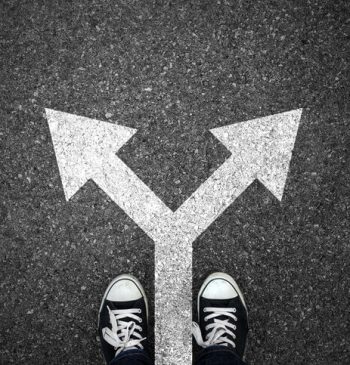07 Apr

When mapping out their marketing strategy, B2B takes various elements into account. Without a doubt, business buyer behavior is one of these elements. B2Bs understand their audience’s purchasing process thanks to business buyer behavior data. Understanding such processes is crucial because it helps B2Bs strengthen their sales strategies with live data. It also helps them achieve their target easier, without missing a beat.
Considering the importance of buying behavior for B2Bs, we wanted to outline business buyer behavior in this article. What are some types of business buyer behavior? How do the decision processes go? What are some of the influencing factors? In this article, we’ll give you an overview of business behavior and how you can implement it for your B2B.
What is Business Buyer Behavior?
Organizations that purchase goods and services for manufacturing other products and services sold, leased, or supplied to others are business buyers. Organizational buying is also known as institutional buying or business-to-business (B2B) buying. Business buyer behavior starts when a company or organization determines a need for goods. Then, they gather details to compare and contrast products and services from competing brands. Finally, they make a final purchase decision.
Organizations purchase goods and services for internal use and use in the manufacturing process to provide a finished product or service for end-users. When the goods are used in their manufacturing process, the purchase process is called industrial buying. In some ways, business buyer behaviors are similar to individual customer buying in that the organization does not make the purchasing decisions. Still, people from all levels of the organization are involved in the process.
Characteristics of Business Buying Behavior
Unlike individual consumer purchases, business buyer behaviors are governed by distinct characteristics that shape how organizations approach and manage their procurement processes. Recognizing these characteristics is essential for suppliers aiming to meet the needs of their business clients effectively and for businesses seeking to optimize their purchasing strategies. Here, we outline the key features:
- Collective Decision-Making: Business purchases often involve input from multiple stakeholders, leading to a collaborative decision-making process involving various departments or individuals.
- Large-Scale Transactions: Business buying typically involves larger quantities and higher financial stakes than individual consumer purchases, necessitating more careful consideration and planning.
- Long-Term Supplier Relationships: Businesses often seek to establish long-term relationships with suppliers for consistent quality, reliable supply, and potential cost benefits.
- Rational and Structured Approach: Unlike individual consumers, businesses follow a more sensible and structured approach to purchasing, focusing on functionality, quality, and return on investment.
- Sensitivity to External Factors: Business buyer behavior is influenced by external factors such as market trends, economic conditions, and technological advancements, requiring businesses to stay informed and adaptable.
- Negotiation Process: Negotiations are a common aspect of business purchases, focusing on price, delivery schedules, payment terms, and after-sales service.
- Emphasis on Supplier Evaluation: Businesses thoroughly evaluate potential suppliers, considering factors like reputation, financial stability, production capacity, and quality control measures.
- Formal Procurement Policies and Procedures: Business purchases are often governed by legal procurement policies and procedures, ensuring compliance, transparency, and consistency in purchasing decisions.
- Requirement-Based Purchasing: Business buying is primarily driven by specific organizational needs and requirements rather than impulse or personal preference.
- Focus on Total Cost of Ownership (TCO): Businesses consider not just the purchase price but the total cost of ownership, which includes expenses related to maintenance, operation, and disposal of a product.
These characteristics highlight business buyer behaviors’ complexity and strategic nature, differentiating them significantly from individual consumer purchasing patterns.
4 Types of Buying Behaviour
Business buyer behavior refers to organizations’ decision-making processes and actions in purchasing and procuring goods and services. This behavior is typically more complex than individual consumer buying due to factors like larger transaction volumes, formal procedures, and the involvement of multiple decision-makers. There are several types of business buying behaviors:
- Straight Rebuy: This business buyer behavior is the most straightforward buying behavior, where a business reorders a product or service without any modification. It’s common in routine purchase decisions and often involves automatic reordering systems.
- Modified Rebuy: In this scenario, a business has experience with the product but is looking to make some changes. This could be due to changes in need, desire for better pricing, or improved features. The decision-making process is more involved than a straight rebuy but less than a new task.
- New Task: This business buyer behavior occurs when a business purchases a product or service for the first time. The decision-making process is usually lengthy and complex, involving extensive research and consideration of various suppliers. It often requires approval from higher levels of management.
- Systems Buying: Sometimes, businesses purchase a complete solution from a single supplier rather than individual components from multiple suppliers. This approach simplifies the buying process and can lead to stronger supplier relationships.
Understanding these business buyer behaviors is crucial for suppliers aiming to market their products or services to businesses effectively. Each type requires a different marketing approach and customer engagement level.
Factors Affecting Business Buying Behavior
Understanding the factors influencing business buyer behavior is crucial for any B2B company. These factors are multifaceted and can significantly impact the decision-making process in organizations:
- Organizational Needs: The primary driver of business buying behavior is the organization’s specific needs. These needs can vary widely, from raw materials for production to software for operations management.
- Interpersonal Factors: The interests and authority of the buyer take center stage, supported by their income, education, and professional status. Each individual in this process brings their unique influence, shaping the decision-making process in subtle yet significant ways.
- Economic Conditions: Market trends and economic climates play a significant role. In times of economic downturn, businesses might tighten budgets, affecting their purchasing decisions.
- Technological Changes: Rapid technological advancements can lead businesses to adapt or upgrade their systems and equipment, influencing their buying behavior.
- Supplier Relationships: Long-term relationships with suppliers can affect purchasing decisions. Trust and reliability in a supplier can lead to repeat purchases and loyalty.
- Regulatory Environment: Compliance with industry regulations and standards can dictate what businesses can or must purchase, impacting their buying behavior.
- Competitive Pressure: The need to stay competitive can drive businesses to make purchases that help them maintain or enhance their market position.
- Internal Policies and Procedures: Organizational procurement policies and the structure of the decision-making process can also influence buying behavior.
By understanding these business buyer behavior-affecting factors, businesses can tailor their sales and marketing strategies to better align with the needs and behaviors of their B2B customers, leading to more effective and successful transactions.
What are Some Responsibilities of Buyers?
The industrial marketer must recognize the people who are a part of the purchasing decision process. Buying centers involve everyone or every unit that is involved in such processes. Initiators are individuals who place the request for a purchase or acquisition. Users are the starters of the purchasing process as they use the products. Individuals within an organization who affect decision-making by presenting information on purchasing requirements are known as influencers (for example, R&D personnel).
Deciders, such as engineers, are parts of the organization that have the power to make decisions regarding the purchase. Gatekeepers are parts of the organization with the authority to prohibit sellers or details from reaching buying center members. These could be receptionists, secretaries, or purchasing agents. Approvers are the individuals who approve the purchase. Buyers have the legitimate authority to decide on the supplier and organize the purchase terms.
What are the Motives of B2B Buyers?
Some of the motivations that mold the business buyer behavior for B2B are plenty. The efficiency of performance, how practical the buy is, and the capacity improvement are very important. In addition, finance, quality, simplicity, profitability, ease of use, compactness, obsolescence, safety, and cleanliness are other motivators for business buyers. When shaping their strategy, B2B marketers should have a relevant list for their audience to hit their target.
The Decision Process for Business Buying
You could treat the “company purchasing” as a decision-making process with different measures for different businesses and goods. We outlined below the phases of the business buyer behavior process:
- Recognize the issue
- A summary of the general need
- Find a Supplier
- Information gathering and supplier assessment
- Purchase Order Negotiation
- Performance Assessment of Suppliers
1. Recognizing the Issue
This initial stage in the business buyer behavior involves identifying or recognizing a need that can be fulfilled by obtaining a product or service. It’s a critical step where an organization becomes aware of a gap or requirement that necessitates external procurement. This could be triggered by various factors such as equipment failure, inventory depletion, or new project requirements. The key is for the organization to understand what is needed to address the issue effectively and clearly.
2. A summary of the General Need
Once the need is recognized, the next step is to define it more precisely. This involves deciding on the product requirements, including the required item’s general characteristics and quantity. This step is crucial for guiding the subsequent search for suppliers. It involves consultations with different departments to ascertain specifications, quality standards, and the amount needed. According to this business buyer behavior, the outcome is a detailed description of what is required, which will inform the purchasing decision.
3. Finding a Supplier
This business buyer behavior step involves identifying potential suppliers or vendors who can provide the product or service that meets the organization’s needs. It’s a critical phase where the business might look into various sources like online searches, trade shows, industry recommendations, or existing supplier networks. The goal is to create a list of potential suppliers capable of fulfilling the identified need.
4. Information Gathering and Supplier Assessment
Before finalizing a supplier, the organization engages in a thorough evaluation process. This business buyer behavior involves gathering detailed information about each potential supplier and assessing their capabilities. Factors such as the supplier’s reputation, financial stability, production capacity, quality control measures, and delivery timelines are considered. This step might also involve visiting supplier facilities or requesting samples to ensure they meet the required standards.
5. Purchase Order Negotiation
In this phase, the organization’s buyer negotiates a contractual arrangement with the chosen supplier. This negotiation can cover various aspects such as price, delivery schedules, payment terms, and after-sales service. The arrangement might be for a single purchase or a series of purchases over a specified period. Effective negotiation ensures the organization gets the best value for its money while maintaining a good relationship with the supplier.
6. Performance Assessment of Suppliers
After the purchase, the organization needs to assess the supplier’s performance. This business buyer behavior involves evaluating how well the supplier adhered to the terms of the agreement, the quality of the goods or services provided, and their impact on the organization’s operations. This assessment helps determine whether to continue the relationship with the supplier, renegotiate terms, or look for alternative vendors. It’s an ongoing process that ensures the organization maintains a pool of reliable suppliers.
Each of these business buyer behavior steps is crucial in the organizational purchasing process, ensuring that the organization not only acquires the necessary products or services but also builds strong, beneficial relationships with its suppliers.
Applying Business Buyer Behavior Insights into B2B Loyalty Programs for Enhanced Sales
Understanding and leveraging business buyer behavior is pivotal for shaping effective B2B strategies. This behavior is an organic blueprint, guiding businesses in tailoring their sales and marketing efforts. Companies can significantly enhance their sales strategies by closely monitoring and analyzing how business buyers make their purchasing decisions, leading to more effective B2B loyalty programs.
To effectively harness these insights, businesses can utilize various platforms to gather and analyze data specific to their customers. This data provides a wealth of information that can be used to tailor loyalty programs better to meet the needs and preferences of business buyers. For instance, if data shows that buyers value efficiency and ease of use, a loyalty program can be designed to reward these aspects, such as offering expedited service or simplified ordering processes for loyal customers.
Apex Loyalty offers professional support in interpreting and implementing business buyer behavior insights into B2B customer loyalty programs. By leveraging our services, businesses can refine their loyalty programs, ensuring they are aligned with their sales strategies and resonate deeply with their B2B customers. This alignment is crucial for building a sustainable and prosperous future in sales, where loyalty programs play a key role in maintaining and strengthening business relationships.
You can read our previous post from https://www.apexloyalty.com/account-based-marketing-for-b2b/







